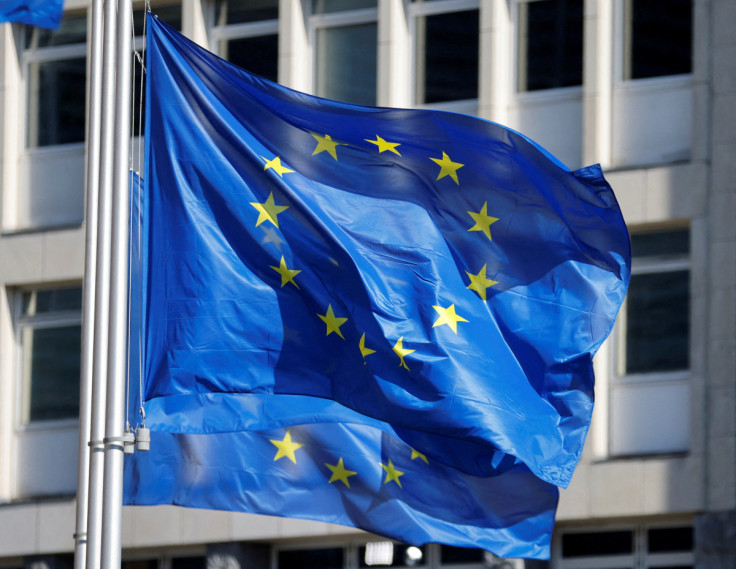European Commission sets out measures to support the EU defense industry
Whilst uncertainty remains over the path to peace in Ukraine, the European Commission has set out 'the Act in Support of Ammunition Production' to address ammunition shortages.

The ongoing Ukraine war presents a set of moral and strategic choices for the West and the EU.
Many believe, morally speaking, Russian President Vladimir Putin's invasion of Ukraine is arguably unjust and therefore should be resisted. According to this view, it would be wrong to abandon Ukrainians and leave their fate in the hands of Putin. Therefore, western nations, including members of the EU, should supply military aid to assist the resistance of Ukrainians.
This appears to be the position of the European Commission (EC). According to EC President Ursula von der Leyen: "Ukraine's brave soldiers need sufficient military equipment to defend their country." According to her "Ukraine is heroically resisting the brutal Russian invader. We stand by our promise to support Ukraine and its people, for as long as it takes."
Her comments were made as the EC launched the "Act in Support of Ammunition Production (ASAP)". This follows the agreement amongst the Council of the EU back in March to pursue a "three-track approach" aimed at "speeding up the delivery and joint procurement of ammunition for Ukraine," with a target of delivering "one million rounds of artillery ammunition" within a 12-month time frame.
Moreover, the demand created by the Ukraine war has caused an ammunition supply shortage. The ASAP Act pertains to the third track of the three-track approach; it entails "ramping up and speeding up the defence industrial production of ammunition in Europe" according to von der Leyen.
So what do ASAP measures include? Firstly, the provision of financial support to reinforce the EU's production capacity for necessary defence equipment. Secondly, a mechanism intended to address bottlenecks in supply chains that will "map, monitor and better anticipate their existence." Thirdly, the creation of a "temporary regulatory framework", which addresses shortages in the supply of ammunition.
In terms of funding, a budget of €500 million has been proposed by the EC to pursue these measures.
The path to peace?
All of this begs the question of how the Ukraine war can be resolved, and how peace can prevail.
Von der Leyen says that the mobilisation of one billion euros to increase the defence capacities of the EU27 is critical for Europe "to defend its interests and values, and help maintain peace on our continent." However, if peace in Europe is a key objective of the EC and the EU, it is unclear how it is commensurate with the further provision of ammunition for Ukraine.
If Europe continues to support the Ukrainian resistance through the supply of ammunition, isn't the war only likely to drag out for longer? Indeed, as quoted above, von der Leyen said explicitly that the EU must support Ukraine "for as long as it takes", implying a willingness to tolerate war for the foreseeable future.
Whilst the supply of military ammunition might be morally justified to allow Ukraine to defend its sovereignty, it seems flawed to think that it is conducive to peace. On the contrary, it surely only stands to fuel the conflict, with more suffering and destruction as a result. And not just suffering for Ukrainians, but also for Russian soldiers who are ordered to fight Putin's war. Indeed, Russian casualties in Ukraine have been severe.
President Zelenskyy of Ukraine has put forward a 10-point peace plan. On the 23rd of March this year, EU leaders expressed their support for this plan.
However, the peace plan articulates terms that Putin is surely bound not to accept. For example, "the restoration of Ukraine's territorial integrity" which Zelenskyy says is not up for negotiation and the "restoration of Ukraine's state borders with Russia." If the purpose of the invasion was to assert Russia's power in its desired sphere of influence, why would Putin accept these terms?
But perhaps peace isn't really the objective behind the supply of ammunition by the EU and the West to Ukraine. A realist explanation which focuses on the balance of power within the international system, as opposed to moral and ethical factors, might be a better way of explaining the provision of arms and ammunition.
If Russia is allowed to be successful in Ukraine, the geopolitical consequences are concerning for the rest of Europe. What is to stop Putin and future Russian leaders from pushing further west, infringing upon the territorial security of other nation-states in Europe? Concerns over territorial security are reflected in the decision of Russia's neighbour Finland to join NATO.
To deter any future invasions by Russia, many argue the necessity for Western liberal democracies to demonstrate a collective will against the invasion, one that can only be meaningfully articulated through hard power support for Ukraine.
© Copyright 2025 IBTimes UK. All rights reserved.





















